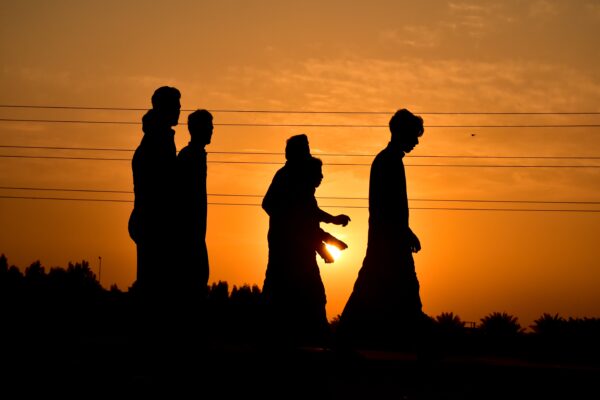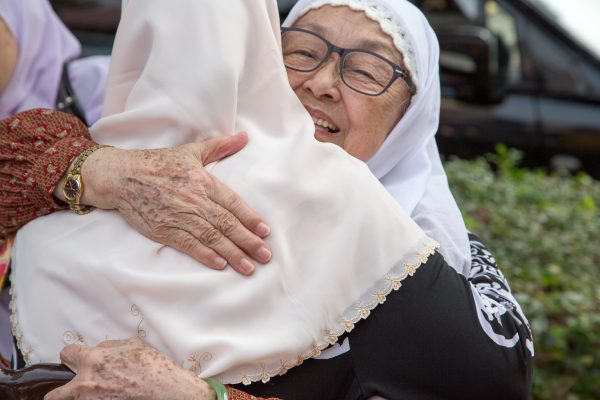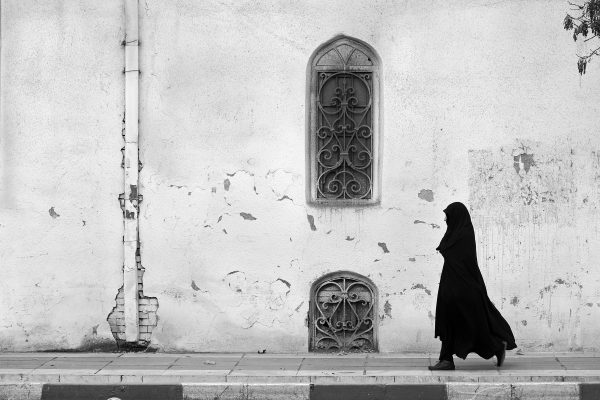God was never a foreign concept to me. As early as I can remember, my family attended church on the major holidays and not-so-busy Sundays, sending us downstairs partway through the ceremony to sit in a cramped but cozy Congregational Church basement where we listened to Christian origin stories and colored.
As the years went on, church became less a part of our lives and more a place we occasionally went, when time allowed. I still believed in a higher power but wasn’t sure how to talk to Him or if he was even listening.
In 2015, I needed a new adventure. I moved to China to teach English as a second language to children. With only a few suitcases, a visa-stamped passport and hopeful (naïve) optimism, I made the major move 7,000 miles from the United States. I had spent 25 years in relative comfort, being able to read all the signs and menus I came across and not facing any culture clashes in my daily life.
Suddenly, I understood nothing, and had to use gestures and pointing to ask where to find shampoo at the local grocery store. It was disorienting at first, but over time I began to understand basic words and phrases, as well as cultural do’s and don’ts so I wouldn’t embarrass myself at my favorite noodle shop.
Fast forward a year later. Tired of living in a smaller Chinese city where I wasn’t experiencing the China I had read about, I had moved to Beijing. A city of 25 million people. I began to meet people from dozens of different countries and cultural backgrounds. Ever the journalist, I asked them all sorts of questions to learn more about parts of the world I haven’t been lucky enough to experience on my own yet.
I started spending more and more time with Muslims from various countries. The more I witnessed their demeanor, kindness and hospitality toward myself and others, the more I knew that there was something special about their faith, Islam, that I barely knew anything about.
No one ever forced Islam on me. Not once. But the moment I showed curiosity, the friends I made were quick to send me PDFs, YouTube videos, flash drives, and their own hardcover books on the faith they loved so much.
I became a student of Islam in my spare time, spending late nights poring over the Quran, nonfiction accounts of reverted Muslim women, novels by Muslim authors, and more. I couldn’t get enough.
During Ramadan in 2016, I decided to try fasting for the first time. I invited friends over for iftar (breaking fast) in the evening, trying my hand at traditional dishes I had learned how to make throughout my time in Beijing. I was surprised to find that fasting was not as difficult as I had imagined.
As long as I kept myself busy and reminded myself why I was doing it, though I had not yet converted, I found it fairly easy. The camaraderie at the end of a long day of fasting was one of the best parts, where my friends and I would gather over a delicious meal and express gratefulness for food after so many hours without.
That fall, after spending the summer back home with family, I decided to convert. I took shahada at home, and instantly felt a wave of relief rush over me, as if confirming my choice. In the following days, I continued to learn more about Islam, practicing prayer and asking my friends more and more questions. They were always patient with my endless inquiries.
As my journey continued, I found myself rushing into Islam as if a building were on fire. I started to wear hijab, confounding my family and friends in the states and without genuinely understanding the reasoning behind it and the commitment it requires. I hastened to make many sudden changes to my lifestyle, driving a wedge between my closest family members and myself.
They could not understand why a free-spirited American woman would suddenly adopt a faith that can seem, to an outside perspective, strict and unyielding. Instead of patiently explaining to them why I had chosen Islam, and that I had studied and prayed and thought about this decision for nearly a year, I reacted defensively, as if they were attacking my newfound faith. It was true that I had found a deep and fulfilling peace in Islam, but I had also let culture influence my behavior and expression of my faith.
I thought that to call myself Muslim, I had to “look” Muslim. Neglecting the importance of intention and the contents of your heart, I defiantly wore the hijab and held grudges against those who spoke against my new habits.
In the years following my conversion, I experienced high peaks and deep, dark valleys in my imaan (faith). I removed the hijab soon after hastily wearing it, realizing that if I ever made the decision to wear the hijab full-time, I wanted it to be a decision I made from the depths of my heart and for Allah, not for anyone else. I rebuilt the bridges I had nearly burned with family. Though they may not fully understand Islam or my love for the deen (religion) to this day, they see that it is a source of happiness and fulfillment for me, and no longer question my intent.
I am so grateful to the friends I met in China who opened my eyes and heart to Islam. Without being forceful or judgmental, (“There is no compulsion in religion.” [al-Baqarah 2:256]), they helped me understand why no matter what befell them, they seemed to maintain a sense of calm hopefulness, knowing that it all had been written and as long as they maintained their faith in Allah, life would work out.
I would be remiss to mention China as an integral part of my journey without mentioning the atrocities that are taking place in the Uyghur region. An estimated 1 to 3 million Uyghur Muslims are being held in concentration camps, horrifically tortured, separated from their families, forced to drink alcohol, eat pork, renounce their faith, and more. Learn more about this crime against humanity here and see how you can help here.
Salam Alaykum and peace be upon you all.





